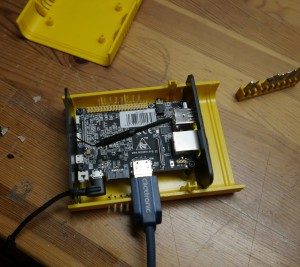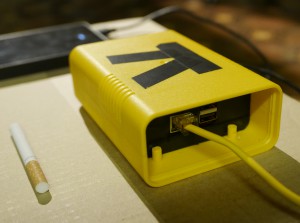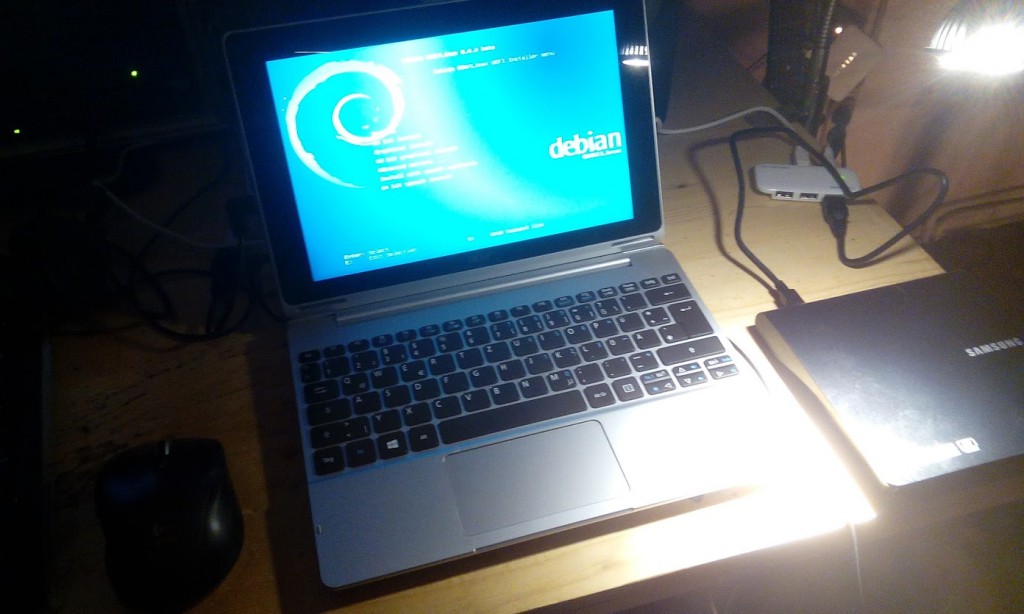I cut a bay for my Clicktronic HDMI-to-DVI adapter into my Banana Pi case.

HDMI adapter bay milled into the case (lower half with board, power and display connectors attached).
To maintain structural stability of the case, I had to cut about one half of the bay into the lower half of the case and the other into its upper half. To do this, I had to raise the mount level of the board by about 5 milimeters (to some 15 milimeters above case interior bottom overall).
Luckily, the front and back panels do have generous enough openings for the other connectors (Ethernet, dual USB host ports, SD card) to still pass through.
Also, the (massive) HDMI connector/adapter thing is savely hinged into the cut of the bay, which fits it tightly, hindering the adapter from excessive tilting, which could lever the board out of it’s socketing or (worse) tear the HDMI connector from the board.
But the fix-mounted USB power supply now hung “in the open”, passing any stress on it directly over to the connector and board.




